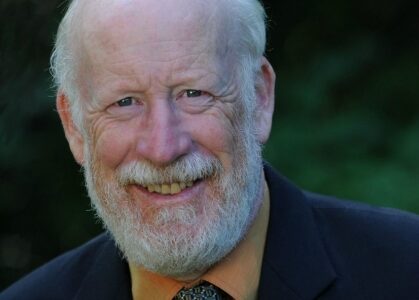COMMENT: The Olympic Slum
As the curtain began to part in constructing the stage for the 2010 Winter Olympics, much of Vancouver began to experience a monumental economic transformation while the Downtown Eastside remained a harsh reality of the city’s social and urban poverty crisis. The significant governmental efforts that had been made to provide temporary shelters for those living on the streets, unfortunately, did not furnish a long-term solution to the swelling homelessness crises.
The Downtown Eastside of Vancouver has long been recognized as an urban poverty carapace. Cardboard boxes, hypodermic needles, and bread line-ups have perpetually tarnished the landscape. During a visit on May 3, 2009 to this part of the city by Vancouver Sun columnist Miro Cernetic, she sadly observed, “at least 100 people sat or lay on garbage-strewn sidewalks. Surrounding buildings were boarded up. A skeleton of a woman was begging on the curb” (Cernetic, May 3, 2009).
On the other side of town, an extravagant amount of money was birthing strings of expensive condominiums and a massive highway expansion project expected thousands of world tourists for the Olympics party. While the city was disbursing massive amounts of money on the Games, the people living on the streets were going hungry and sleeping on sidewalks, and the social problems that put them there were being ignored.
The Olympics have spotlighted a distressing increase in homelessness. An article in The Province newspaper on September 17, 2008, it stated that “Greater Vancouver’s homelessness crises continues to grow at a “stunning” and “shocking” rate with a 373-per-cent increase in homelessness since 2002.”
With this increasing magnitude, the Olympics committee and all levels of government should have shown more responsibility in providing a solution to this social crisis. Some token measures were taken however, as executive director of B.C.’s Civil Liberty’s Association, David Eby, acknowledges that: “the Province bought 25 single resident occupancy buildings as a result of the pressures that were put on them” because of the buildings’ decrepit conditions.
Consequently, mass evictions began to take place in that “there was no moratorium on evictions…. A total of 1,150 units [were] no longer accessible… since the bid process began” stated IOCC member Am Johal. Unfortunately, due to lack of affordable housing, the many former residents then had to resort to living on the street.
Seeing the growing numbers of homeless people begin to line the streets just prior to the Olympics, the government again stepped in and, instead of dispensing affordable housing for these people, they provided additional shelters which included a 24 hour, no barrier policy through the “Assistance to Shelter Act”. According to Eby, this Act “allows police officers to use force to remove homeless people from the street and force them to go to homeless shelters.”
This forced displacement was clearly an infringement on these citizens’ rights. Many homeless people prefer not to use shelters because “users must accept crowded shelter conditions, which carry a high likelihood of TB exposure in inadequately ventilated room[s], along with risks of bedbugs, scabies, and lice infestations.” Additionally, the preponderance of mental illness and addictions, further increase reluctance. The last thing these people needed was to be forced into a situation that would intensify their distress. Shelters are not a replacement for housing; shelters are not homes.
Homeless people are victims of unfortunate social circumstances and misguided government actions. They are our mothers and fathers. They are our sisters and brothers. They are our sons and daughters. They are our friends. They are real people with real needs. We don’t have the right to spend billions of dollars on parties, while our fellow people are on the streets.
All levels of government should have provided adequate housing, and mental health and addiction services before allowing the Olympics to overshadow the very heart of our society.
Ms. Fuhrmann is a student and activist living in the South Slocan.
























